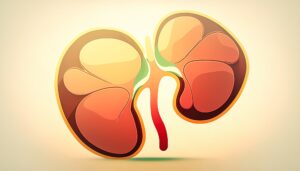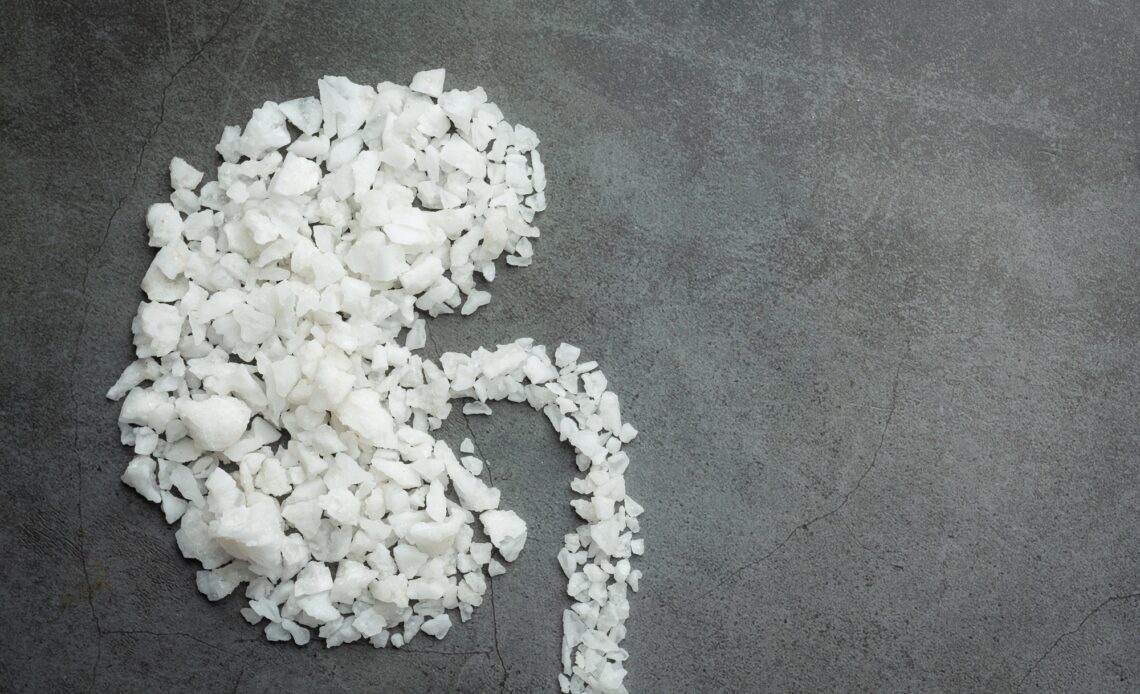Introduction
Kidney stones, those tiny but notoriously painful mineral formations that can develop within your kidneys and make their journey through your urinary tract, can be a source of significant discomfort and distress. However, the good news is that you have the power to minimize the likelihood of their occurrence through the choices you make in your daily diet and lifestyle. In this comprehensive blog post, we will delve into the world of kidney stone prevention through dietary adjustments and provide you with valuable insights and practical guidance on how to make informed nutritional choices that can significantly reduce the risk of developing these agonizing stones.
Stay Hydrated

Staying well-hydrated is a foundational pillar in the effort to prevent kidney stone formation. Dehydration, or insufficient fluid intake, is a substantial risk factor in the development of these painful mineral deposits. When you don’t consume an adequate amount of fluids, the urine becomes more concentrated, making it easier for minerals to crystallize and form stones. Therefore, the importance of drinking enough water cannot be overstated. A general guideline to aim for is approximately 8-10 glasses of water per day. However, it’s essential to adapt your intake based on your individual needs. In hot weather or after rigorous physical activity, you should increase your fluid intake to compensate for the additional fluids lost through sweating. By consistently maintaining proper hydration, you dilute the minerals in your urine, reducing the likelihood of kidney stone formation and helping your kidneys flush out waste and toxins more effectively.
Choose the Right Beverages
Choosing the right beverages is a crucial aspect of preventing kidney stones. Opting for the right drinks can significantly reduce your risk of stone formation. Water is, without a doubt, the top choice. It’s natural, calorie-free, and an excellent way to stay hydrated. It helps in diluting urine, making it more challenging for minerals to aggregate and form stones. In contrast, sugary sodas and fruit juices should be consumed sparingly. These beverages are often loaded with sugars and empty calories, which can contribute to weight gain and an increased risk of kidney stones. They also don’t offer the same hydration benefits as water.
Citrus drinks, such as lemonade, limeade, or even just a squeeze of lemon or lime in your water, can be particularly beneficial. Citrus fruits contain citrate, which can inhibit the formation of certain types of kidney stones. Citrate helps prevent the aggregation of calcium-based crystals in the urine, which is a common precursor to stone formation. Therefore, incorporating citrus drinks into your diet can be a tasty and health-conscious way to enjoy your beverages while providing an extra layer of protection against kidney stones.
Watch Your Sodium Intake

Monitoring your sodium intake is an essential step in the prevention of kidney stones. A diet high in sodium can lead to an increased risk of stone formation due to its influence on the balance of minerals in your body. Sodium promotes calcium excretion in the urine, which can increase the concentration of calcium, a common component of kidney stones. To reduce your risk, it’s important to be mindful of your sodium consumption. This involves limiting your intake of salty processed foods, fast food, and restaurant meals, which are often loaded with sodium to enhance flavor and extend shelf life.
Instead, opt for cooking at home where you have control over the ingredients. Incorporate herbs, spices, and other flavor-enhancing ingredients like garlic, onions, and citrus to season your meals. This not only reduces your sodium intake but also adds depth and richness to your dishes, making them both delicious and kidney-friendly. By making these dietary adjustments, you can help maintain a healthy mineral balance and decrease your risk of developing painful kidney stones.
Cut Back on Animal Protein
Reducing your intake of animal protein, especially from sources like red meat and poultry, is a wise strategy for kidney stone prevention. Diets that are high in animal protein can elevate the levels of uric acid and calcium in the urine, which are key components in the formation of certain types of kidney stones. To mitigate this risk, it’s advisable to cut back on meat consumption and explore alternative sources of protein.
Plant-based protein options can be excellent substitutes. Legumes, including lentils, chickpeas, and beans, are rich in protein and can easily be incorporated into a variety of dishes like soups, salads, and stews. Tofu, derived from soybeans, is another protein-rich alternative that can be used in stir-fries, sandwiches, or as a meat substitute in many recipes. Nuts, such as almonds and walnuts, are not only a great source of protein but also provide healthy fats and other essential nutrients.
By transitioning to a diet that leans more heavily on plant-based protein sources, you reduce your risk of kidney stone formation, while also enjoying the added benefits of a diet rich in fiber, vitamins, and minerals. Plus, plant-based proteins tend to be lower in purines, which can help minimize uric acid levels in the urine, decreasing the risk of specific types of kidney stones. Making this dietary shift is a positive step toward safeguarding your kidney health and reducing the potential for kidney stone formation.
Moderate Your Oxalate Intake
Moderating your oxalate intake is an important aspect of a kidney stone prevention diet, especially if you’re prone to developing calcium oxalate stones, the most common type of kidney stone. Oxalate is a naturally occurring compound found in various foods, and when it combines with calcium in your urine, it can form crystals that lead to stone formation.
High-oxalate foods include spinach, beets, rhubarb, sweet potatoes, and some nuts like almonds and cashews. It’s essential to note that you don’t have to eliminate these foods from your diet entirely. Many of them are rich in nutrients that are beneficial for your overall health.
Instead, aim to consume high-oxalate foods in moderation and balance them with foods that are lower in oxalates. Cooking or boiling certain high-oxalate vegetables can reduce their oxalate content, making them a more kidney-friendly option. Pairing high-oxalate foods with calcium-rich foods, such as dairy products, can also help bind oxalates in the digestive tract before they reach the kidneys.
By practicing moderation and making informed dietary choices, you can enjoy the health benefits of high-oxalate foods while minimizing their contribution to kidney stone formation. It’s a balanced approach that allows you to maintain a diverse and nutritious diet without compromising your kidney health.
Maintain a Healthy Calcium Intake
Maintaining a healthy calcium intake is a nuanced but critical aspect of kidney stone prevention, and it often surprises people to learn that, contrary to popular misconceptions, dietary calcium can play a protective role against kidney stones. Calcium actually serves as a natural oxalate binder in the digestive tract, preventing excessive absorption of oxalate into the bloodstream, which can later contribute to stone formation in the kidneys.
Therefore, a diet that includes an appropriate amount of calcium can be instrumental in reducing your risk of developing calcium oxalate stones, the most common type of kidney stone. The key is to select the right sources of calcium. Low-fat or non-fat dairy products such as milk, yogurt, and cheese are excellent choices, providing an ample supply of calcium without excessive saturated fat content. If you’re lactose intolerant or following a plant-based diet, there are also fortified plant-based milks, like almond or soy milk, which can provide a calcium source comparable to dairy. Additionally, many leafy greens like kale, collard greens, and bok choy are rich in calcium.
Increase Fiber Intake
Increasing your fiber intake is a wise dietary choice for kidney stone prevention, and it offers a range of benefits beyond just stone reduction. A high-fiber diet, rich in whole grains, fruits, and vegetables, is essential in reducing the risk of kidney stones, particularly calcium oxalate stones, the most common type. Fiber-rich foods contain various compounds that aid in stone prevention.
Firstly, fiber helps in regulating your digestive system. A well-functioning digestive system ensures that waste products, including excess minerals and toxins that can contribute to stone formation, are efficiently eliminated from the body. This helps reduce the concentration of stone-forming minerals in your urine. Fiber also binds to calcium in the digestive tract, limiting the absorption of calcium, which can later combine with oxalate to form stones. This is especially beneficial for individuals who are prone to calcium oxalate stones.
Furthermore, a diet high in fiber can help control weight, promote a sense of fullness, and reduce overeating, all of which are essential in maintaining a healthy body weight—a key factor in kidney stone prevention. To incorporate more fiber into your diet, choose whole grains like brown rice, quinoa, and whole wheat bread, and load up on a variety of fruits and vegetables. Legumes, such as lentils, beans, and chickpeas, are also excellent sources of fiber. By maintaining a diet rich in fiber, you not only reduce your risk of kidney stone formation but also contribute to your overall health and well-being.
Limit Sugar and Fructose
Limiting your consumption of sugar and fructose is a vital step in preventing kidney stones, especially if you are prone to developing them. Research has shown a correlation between excessive sugar and fructose intake and an increased risk of stone formation. High sugar consumption can lead to several factors that contribute to stone development.
Firstly, a diet high in sugar can result in weight gain and obesity, which is a known risk factor for kidney stones. Additionally, sugary foods and beverages can lead to insulin resistance, which in turn raises urinary calcium excretion, a common factor in stone formation. Fructose, found in high-fructose corn syrup and many sweetened beverages, can contribute to the formation of uric acid stones by increasing uric acid levels in the body.
To protect yourself from the potential dangers of excessive sugar and fructose consumption, it’s essential to make informed food choices. Steer clear of sugary snacks, candies, and sweetened drinks, which often provide empty calories without any significant nutritional benefit. Be diligent about reading food labels to identify hidden sources of sugar in packaged foods, as many products contain added sugars that might not be immediately obvious. By limiting your sugar and fructose intake, you not only reduce your risk of kidney stones but also support your overall health and well-being by avoiding the harmful effects of excessive sugar consumption.
Maintain a Healthy Weight
Maintaining a healthy weight is a fundamental aspect of kidney stone prevention, and it plays a pivotal role in reducing your risk of developing these painful mineral deposits. Being overweight or obese can lead to several factors that contribute to kidney stone formation.

- Increased Calcium Excretion: Excess body weight can lead to increased urinary calcium excretion, a known risk factor for stone formation. This occurs because the body’s excess fat tissue produces more substances that encourage stone development.
- Insulin Resistance: Obesity is associated with insulin resistance, a condition in which your body’s cells don’t respond effectively to insulin. Insulin resistance can lead to higher urinary excretion of calcium, oxalate, and uric acid, all of which are components of different types of kidney stones.
- Low Physical Activity: Obesity often coincides with a sedentary lifestyle, which can contribute to weight gain and a higher risk of stone formation. Staying physically active can help maintain a healthy weight and improve overall kidney health.
By following a balanced diet and staying physically active, you can shed excess weight and reduce the risk of kidney stone formation. It’s essential to engage in regular exercise, as physical activity not only aids in weight management but also helps regulate various metabolic processes that can impact kidney stone risk. A balanced diet, as described in the previous points, plays an essential role in both weight management and stone prevention. By maintaining a healthy weight, you not only protect your kidney health but also promote your overall well-being.
Consult a Dietitian
Consulting a registered dietitian is a proactive and highly effective step in preventing kidney stones, especially if you have a history of kidney stones or are considered at risk due to specific factors. Dietitians are trained experts in nutrition and dietary management, and they can provide personalized guidance tailored to your individual needs.
Here’s why consulting a dietitian is valuable for kidney stone prevention:
- Personalized Guidance: A dietitian will assess your unique health profile, taking into account factors such as your medical history, current dietary habits, and specific risk factors for kidney stones. This assessment helps them create a customized dietary plan that addresses your specific needs.
- Dietary Recommendations: Based on their assessment, a dietitian will provide specific dietary recommendations that are designed to reduce your risk of kidney stone formation. These recommendations can include adjustments to your fluid intake, dietary choices, and portion sizes.
- Education: A dietitian can educate you about the relationship between your diet and kidney stone formation. They can explain the roles of various nutrients, minerals, and dietary factors in stone development, helping you make informed choices.
- Monitoring and Adjustments: Working with a dietitian allows for ongoing monitoring and adjustments to your dietary plan. They can help you track your progress, address any challenges or concerns, and modify your diet as needed.
- Preventive Strategies: In addition to dietary advice, a dietitian can help you implement lifestyle changes that contribute to kidney stone prevention, such as weight management, physical activity, and strategies for maintaining overall health.
By collaborating with a dietitian, you can take a proactive and informed approach to kidney stone prevention. Their expertise and personalized guidance will empower you to make dietary choices that are tailored to your specific situation, ultimately reducing your risk of developing painful kidney stones.
Monitor Your Portion Sizes
Monitoring your portion sizes is a simple yet crucial element in the prevention of kidney stones. It involves being mindful of the quantities of food you consume and can significantly contribute to maintaining a balanced diet that minimizes the risk of stone formation.
Here’s why monitoring portion sizes is essential:
- Caloric Control: Large portions often mean an excess of calories. Consuming more calories than your body requires can lead to weight gain, and being overweight is a known risk factor for kidney stones. By controlling your portion sizes, you can better manage your caloric intake and maintain a healthy weight.
- Nutrient Balance: Overconsumption of certain nutrients, such as protein and sodium, can contribute to kidney stone formation. By moderating your portion sizes, you can avoid excessive intake of these nutrients, creating a more favorable environment for your kidney health.
- Oxalate and Calcium Control: When it comes to preventing calcium oxalate stones, a common type of kidney stone, portion control can help you strike a balance between dietary calcium and oxalate. Eating calcium-rich foods in moderate portions while consuming high-oxalate foods in smaller portions can reduce the risk of stone formation.
- Mindful Eating: Paying attention to portion sizes encourages mindful eating, which is a practice of being fully present and aware of your food and its flavors. This can help prevent overeating and promote healthier eating habits.
To monitor your portion sizes effectively, you can use visual cues, such as the size of your hand or the dimensions of your plate, as references. Additionally, consider practicing mindful eating, which includes savoring each bite, eating slowly, and listening to your body’s hunger and fullness cues. By being mindful of your portions, you’ll not only promote kidney stone prevention but also encourage overall healthier eating patterns and more balanced nutrition.
Conclusion
Preventing kidney stones with diet is a proactive and effective way to ensure your long-term kidney health. By staying hydrated, making wise beverage choices, moderating your sodium intake, and maintaining a balanced diet, you can significantly reduce your risk of kidney stone formation. Remember that dietary changes may take time to show results, so be patient and consistent in your efforts to protect your kidneys.


